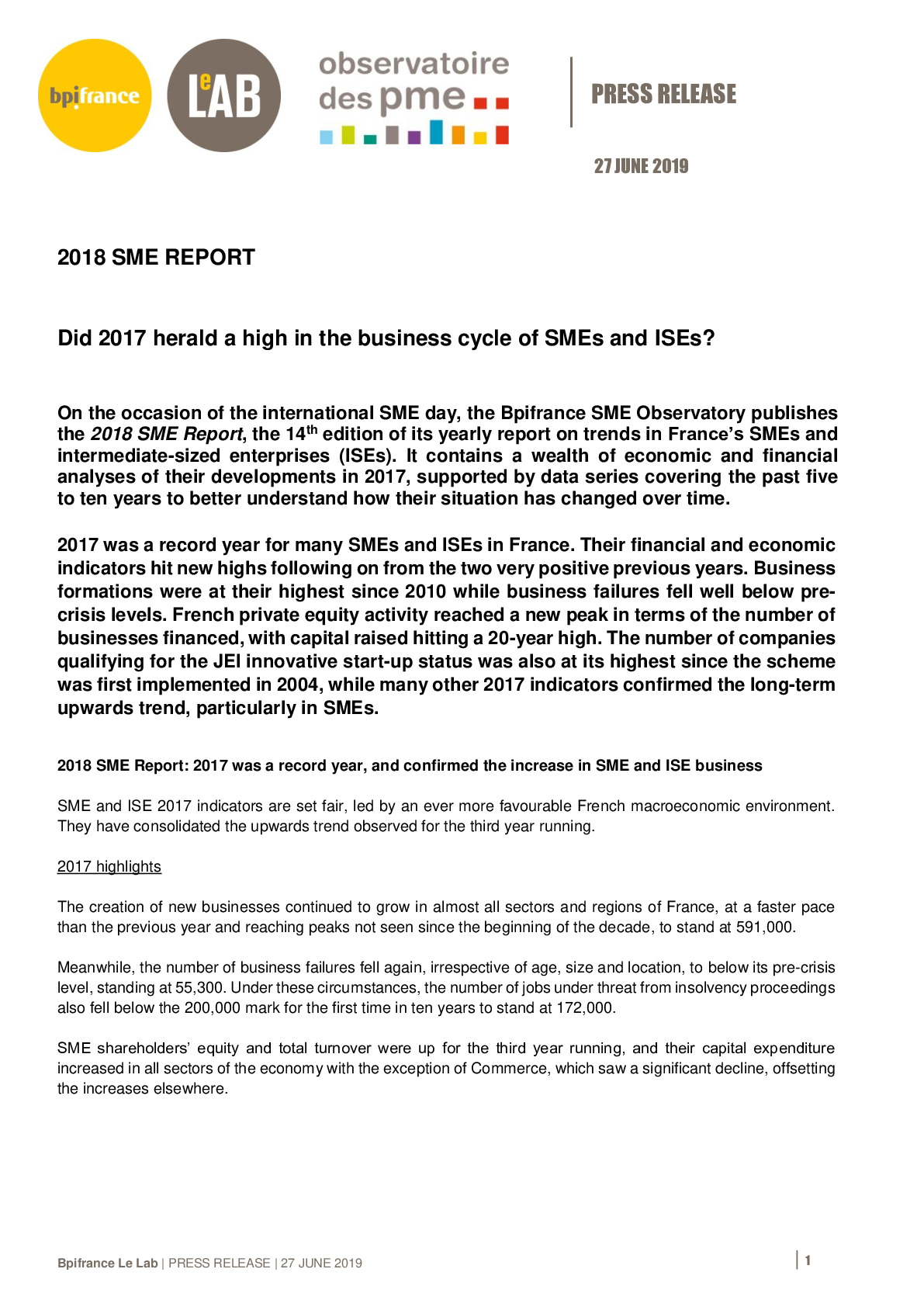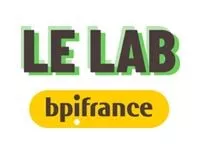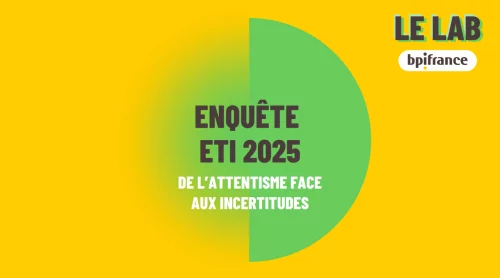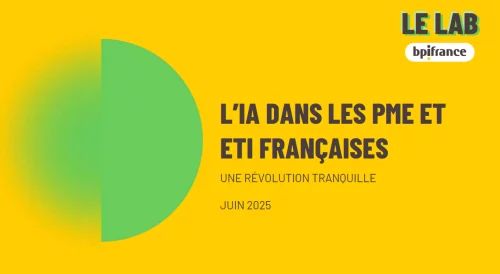2017 was a record year for many SMEs and ISEs in France. Their financial and economic indicators hit new highs following on from the two very positive previous years. Business formations were at their highest since 2010 while business failures fell well below pre-crisis levels. French private equity activity reached a new peak in terms of the number of businesses financed, with capital raised hitting a 20-year high. The number of companies qualifying for the JEI innovative start-up status was also at its highest since the scheme was first implemented in 2004, while many other 2017 indicators confirmed the long-term upwards trend, particularly in SMEs.
2018 SME Report: 2017 was a record year, and confirmed the increase in SME and ISE business
SME and ISE 2017 indicators are set fair, led by an ever more favourable French macroeconomic environment. They have consolidated the upwards trend observed for the third year running.
2017 highlights
The creation of new businesses continued to grow in almost all sectors and regions of France, at a faster pace than the previous year and reaching peaks not seen since the beginning of the decade, to stand at 591,000.
Meanwhile, the number of business failures fell again, irrespective of age, size and location, to below its pre-crisis level, standing at 55,300. Under these circumstances, the number of jobs under threat from insolvency proceedings also fell below the 200,000 mark for the first time in ten years to stand at 172,000.
SME shareholders’ equity and total turnover were up for the third year running, and their capital expenditure increased in all sectors of the economy with the exception of Commerce, which saw a significant decline, offsetting the increases elsewhere.
These SMEs, and primarily micro-enterprises, are contributing to the rise in French goods exports and consolidating their own performance year-on-year, with a 4.6% increase in exports by value for micro-enterprises and 1% for non-micro-enterprises SMEs.
In terms of financing, private equity activity reached new highs in 2017, with a fifth year of rising investment (€14.3bn) into a record number of companies (2,142) and capital inflows at their highest for twenty years (€16.5bn).
France also remains one of the most favourable countries in terms of SME access to bank lending, as illustrated* by the continued rise in lending (+3.7%, higher than the median for OECD countries), lower interest rates, the rise in loan applications approved by lenders, and the lowest number of requests for guarantees. France is again in the lead with just 5% of SMEs required to provide fresh guarantees to secure a loan.
As regards R&D, SMEs still account for more than three quarters of businesses carrying out in-house R&D and one sixth of in-house R&D expenditure, and remain the category of business devoting the highest proportion of its turnover to R&D work (7.9% compared to 2.7% for all businesses as a whole)*.
Over 9,800 businesses have benefited from France’s innovative start-up (JEI) scheme in its 14 years of existence. In 2017, some 3,800 companies participated in the scheme, 902 of which had joined that same year, a record number since it was introduced in 2004.
At the same time, SMEs that were members of a competitiveness cluster outperformed their rivals in terms of both turnover growth (+28 percentage points relative to comparable SMEs that were not clusters-members) and increased headcount (+18 points)*.
*Most recent available data: 2016.
The 2018 SME Report, including online even more analyses, graphs and data, can be found and downloaded free of charge from 27 June at: www.bpifrance-lelab.fr/sme2018
To keep up-to-date with the analyses produced by the French SME Observatory:
- Sign up for the distribution list: observatoiredespme@bpifrance.fr
- Follow us on Twitter: #SMEreport



